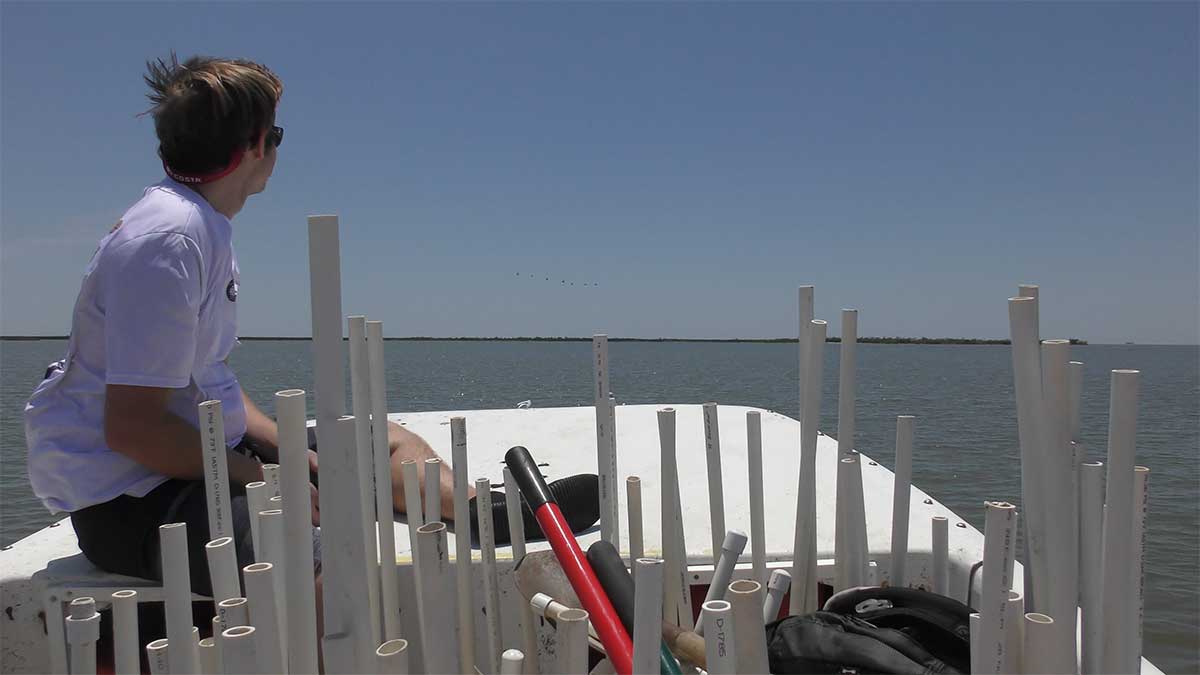
Dauphin Island Sea Lab's University Programs set the course schedule for the 2018 summer sessions. Registration for classes opens the first week of January.
The three summer sessions held during May, June and July include 24 class options for undergraduate and graduate students.
| May Term (May 14-May 25) | First Session (May 28-June 29) | Second Session (July 2-August 3) |
|---|---|---|
| Biology & Conservation of Marine Turtles; Coastal Birds; Dolphins and Whales; Ecology of the Florida Everglades; Shark and Ray Biology; Shellfish Aquaculture of the Gulf of Mexico | Coastal Wetlands Ecology; Intro to Oceanography; Marine Biology; Marine Mammals; Marine Restoration Ecology; Hurricanes of the Gulf Coast; Marine Vertebrate Zoology; Marine Botany; Marine Geology; Marine Ecology; Biotic Response to Sea Level Change; Marine Parasitology | Marine Biology; Marine Behavioral Ecology; Marine Invertebrate Zoology; Marine Aquaculture; Plankton Biology; Marine Conservation Biology; Intro to Oceanography; Marine Vertebrate Zoology; Shark and Ray Biology; Intro to Neurobiology |
The field-based marine science courses bring students into the field for a hands on learning experience to apply what is learned during lecture.
"The internet is everywhere, but with our courses you can get your feet wet," University Programs Chair Dr. Ken Heck said.
New on the course list is Biotic Response to Sea Level Change taught by University of Tennessee at Martin's Dr. Michael Gibson. The course set for 2018's First Session is designed for marine biologists that will help them relate the global scale phenomenon to its local impact over time scales over which ecosystems run.
"Sea level change is not a new phenomenon geologically, but its impact on humans is becoming increasing important as a driving force in marine ecosystems," Dr. Gibson explained. "Marine biologists need to understand not just the global-scale drivers of sea level change, but how individual organisms will respond to this change."
The current sea level change actually began prior to human habitation of most coastal areas. This most recent sea level change has caused marine environments to both shift position and reorganize. One example Dr. Gibson cites sits is the 60,000 year old sunken forest off Alabama's coast. The Funafuti Atoll is another example.
"In this course, we will evaluate our modern marine ecosystem understanding within the context of shifting ocean levels and environments both backwards and forwards in time to provide context for sound decision making policies," Dr. Gibson said.
For more information on each course, and details on how to register for summer session, visit disl.org/univ-prog.
University Programs Summer Promo from Dauphin Island Sea Lab on Vimeo.